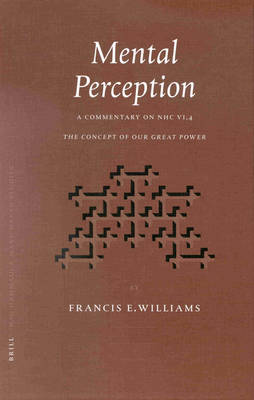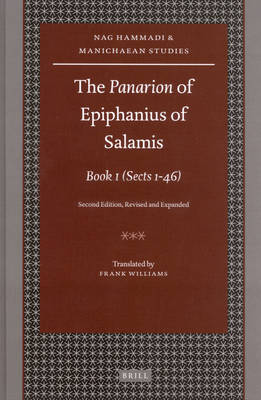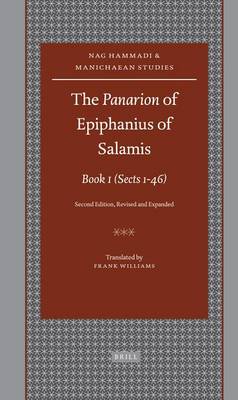Nag Hammadi and Manichaean Studies
2 primary works • 3 total works
Book 51
This book is a new edition and translation of the Nag Hammadi tractate, The Concept of Our Great Power, with introduction and commentary.
It suggests that the tractate is composite, and that its basis was a non-Christian Gnostic apocalyptic work whose background may have been Samaritan, and which emanated from a breakaway Simonian group who, unlike other Simonians, believed in celibacy. The tractate later received Christian additions. The last of these may refer to the career of Julian the Apostate.
This is a fresh approach to the interpretation of this puzzling tractate.
It suggests that the tractate is composite, and that its basis was a non-Christian Gnostic apocalyptic work whose background may have been Samaritan, and which emanated from a breakaway Simonian group who, unlike other Simonians, believed in celibacy. The tractate later received Christian additions. The last of these may refer to the career of Julian the Apostate.
This is a fresh approach to the interpretation of this puzzling tractate.
Book 63
Epiphanius, monastic founder and bishop of Salamis on Cyprus for almost 40 years of the fourth century, threw heart and soul into the controversies of the time and produced the "Panarion" or "Medicine Chest", an historical encyclopedia of sects and heresies and their refutations. Book I, concerned chiefly with Gnostic and Jewish Christian groups, deals with material which is also found in Nag Hammadi and other Gnostic writings and in such patristic authors as Irenaeus, Hippolytus et al, and reproduces documents not available elsewhere. Its translation has been found useful by students of Nag Hammadi and Gnosticism, patrologists, historians of religion, church historians, students of Judaism, and the theologically minded public.


